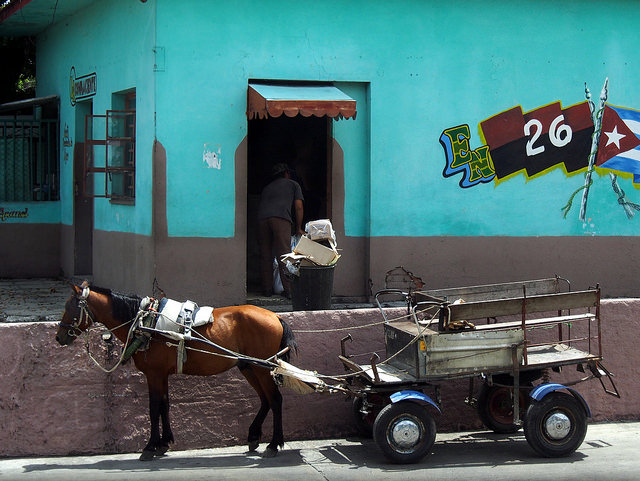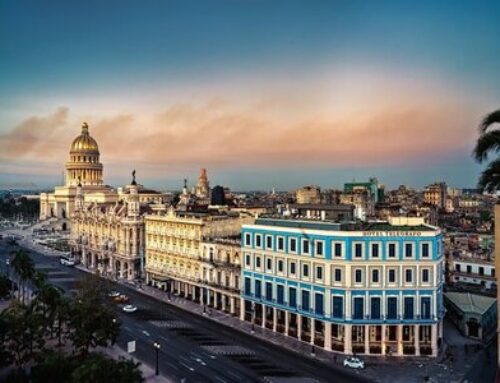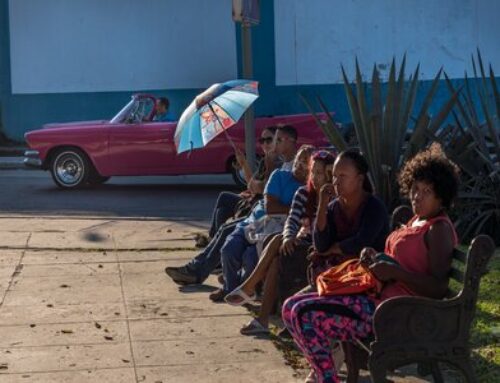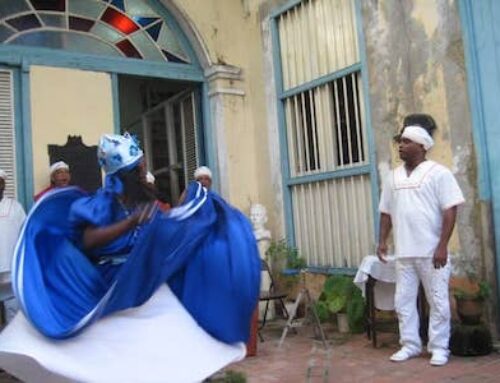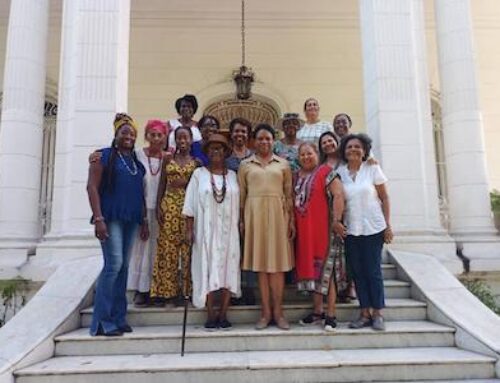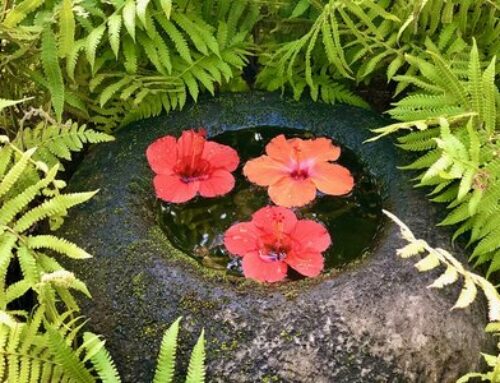The following post was written by Tex Dworkin, Altruvista’s Community Manager. Lead Photo Credit: David Pablo Cohn
In my mind, Cuba is one of those places where lots of people feel a connection to, but each has their own reasons. I’m no exception, and after years of wondering and longing, thanks to Altruvistas, I’m finally going there.
I don’t have Cuban roots, though my connection started out family-based. Before she passed away, my mother would tell me about Cuba. She lived there when she was a little girl along with her siblings (her sister, my aunt, was born there) and their parents–my grandparents. Granddaddy, as we called him, was a U.S. serviceman stationed on the island.
My family got to experience life there, but they weren’t immersed in the culture. Still, knowing my mom lived there as a child was the impetus for my wanting to get there someday.
I developed a deeper connection with Cuba through the many years of work I did at Global Exchange—a human rights organization that sends legions of travelers there on various education based tours. On the job, I did my fair share of learning and writing about Cuba, and formed lots of friendships with people who live there. I still had yet to experience Cuba for myself, but I knew I would eventually get there, and that time has finally come.
I’m going on Altruvistas’ New Year’s In Cuba: Celebrating Culture and Community Trip from Dec. 27th 2015 -Jan. 4th, 2016! (There are 2 spots left, hint hint;)
Before I embark, I thought it would be interesting to freeze in time my preconceptions about Cuba — before the flood gates open and mass quantities of tourists inundate the largest Caribbean island, and my presumptions are replaced with firsthand experiences—knowing full well that I run the risk of generalizing an entire nation. That’s a risk I’m willing to take, so I can look back and remember the Cuba I expected to discover, and one that may never be again.
Turning the tables—if a Cuban writer ventured to guess about the U.S. I would welcome the sneak peek into how the world views us, for better or worse, and be curious to know what she preconceived of the country I call home. Hopefully she would feel the same. So here goes…
Imagining Cuba
To me, Cuba has always seemed so unique and cool—unlike any other place in the world. I imagine a country rich in colors and steeped in culture — a place where necessity has brought out the best in people and the land where they live.
Because of its historical lack of access to basic parts, materials, and products, I expect to see lots of inventive systems the human brain has concocted to get things done. I foresee green farming methods that are brilliant by way of simplicity and environmental impact, and imaginative techniques used to harness sustainable power.
I can already smell the earthy, spicy scents alluding to food that requires no conjecture other than to say that it will ignite my palate but surely not disappoint. Though not usually a rum drinker, mojitos brimming with fresh mint sprigs will wash it down at some point –the perfect accompaniment to my first-ever Cuban cigar, perhaps while we ring in the New Year.
I know from writing about Cuba for so long – that it has one of the highest literacy rates in the world, higher than the U.S. even. It’s been deemed “One of the World’s Most Literary Countries”, so I expect to meet an educated population that is passionately aware of pressing issues, and through an interpreter, I hope to engage in intellectual conversations with anyone willing about whatever sparks our mutual interest.
Speaking of the people—I envisage meeting open-hearted people and am hopeful that many will possess a friendly nature. Oh, let that be true.
I can hear the music already—it’s not my cup of tea but it’s infectious and easy on the ears. My husband, a walking encyclopedia of music trivia, was quick to point out that Cuban music has been infused into some of the earlier rock n roll hits we both love— spawning songs like Twist and Shout, for example. (He offered to pull a quote from his Burt Berns book as proof, but I told him I’d take his word for it.)
Then there’s the dancing. Admittedly I fear the dancing. The Rhumba, Salsa, the Cha-Cha and the Mambo—they’re all beautiful to watch, but terrifying for me to try. I hear there will be salsa lessons during our trip, but that’s not so reassuring, as I’m confidant there will come a time when someone eggs me onto the dance floor. (I have it on good authority that Cuba is home to some of the best ballet dancers in the world. Maybe I should try ballet instead.)
The cars I know will be wonderful to see, as I love most things vintage, but I worry that the iconic 50s spectacles may not be around much longer as auto parts and newer cars become more accessible, and I have a hard time with change.
Change is Coming
Perhaps that’s why I am (and many people are) drawn to Cuba. For those who fear change, it seems like a safe space. In photos, Cuba appears frozen in time—not as affected by the outside world as most places are. Things change though, and now that the U.S. and Cuban presidents have announced the beginning of normalizing relations between the nations, that impending change looms over Cuba like a fog ready to roll in.
When I tell people that I’m headed to Cuba soon, I get a lot of head nods and other signs of approval. “Now is the time to go, before it’s too late.” That’s what they say.
Too late for what? To experience what it will never be again? That sounds rather gloomy, wouldn’t you say? I think the better question is — how will Cuba change? That’s the million-dollar question.
Cut off from trading with its neighbor to the north it seems likely that resourcefulness in Cuba was — at least in some part — born out of necessity, but what will happen as barriers are removed? When Cubans can just buy a new car part instead of jimmying an old one? Will the classic cars themselves start disappearing at record speeds?
I’ve thought about this many times before; when I have less of something, I tend to get the most out of it. And when I can’t get what I need, I find it elsewhere — often right there in front of me, just in a different form. (That’s when ingenuity comes in particularly handy.)
Resourcefulness aside, it’s a safe bet that the biggest impact to Cuba’s transformation will arrive via the influx of tourists. Though it was announced that travel barriers will be lifted, it hasn’t actually gone into effect yet, so you still need to acquire a special license to travel there. But once those flood gates open up, look out.
If Cuba has been frozen in time, it won’t be for much longer. Neither will my preconceptions, whether they’re right or wrong.
It’s too soon to tell how the small country will change once outside influences and hoards of tourists arrive, but I can say, without provocation, that I hope Cuba is as special as I imagine it to be, and that it stays that way.
The first step is for me to go there, and perhaps later it will be to return and discover the differences.
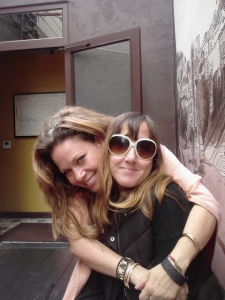
Malia (left) and Tex (right)
Care to Join Me and Travel to Cuba for New Years?!
New Year’s In Cuba: Celebrating Culture and Community:
Dec 27, 2015 -Jan.4th, 2016
As ‘they’ say–NOW is the time to go to Cuba, before it’s too late. There are 2 spots left on the Altruvistas New Years trip, which will focus on Cuba’s dynamic culture and arts. Altruvistas founder Malia Everette will be leading this celebratory trip. She’s an expert on both socially responsible travel AND Cuba, so you couldn’t pick a better person to travel there with!
If you’d like to join Malia and me, along with likeminded travelers on this once-in-a-lifetime adventure:
A Culture of Arts & the International Jazz Festival
December 11 – 20, 2016
Here’s another Altruvistas trip to Cuba worth mentioning: Portland Community College worked with Altruvistas to put together this unique travel tour of Cuba. Travelers will explore Cuba’s dynamic music and arts scenes through intimate exchanges with artists and performance, and experience the beauty of the island’s people and cultural heritage sites.

